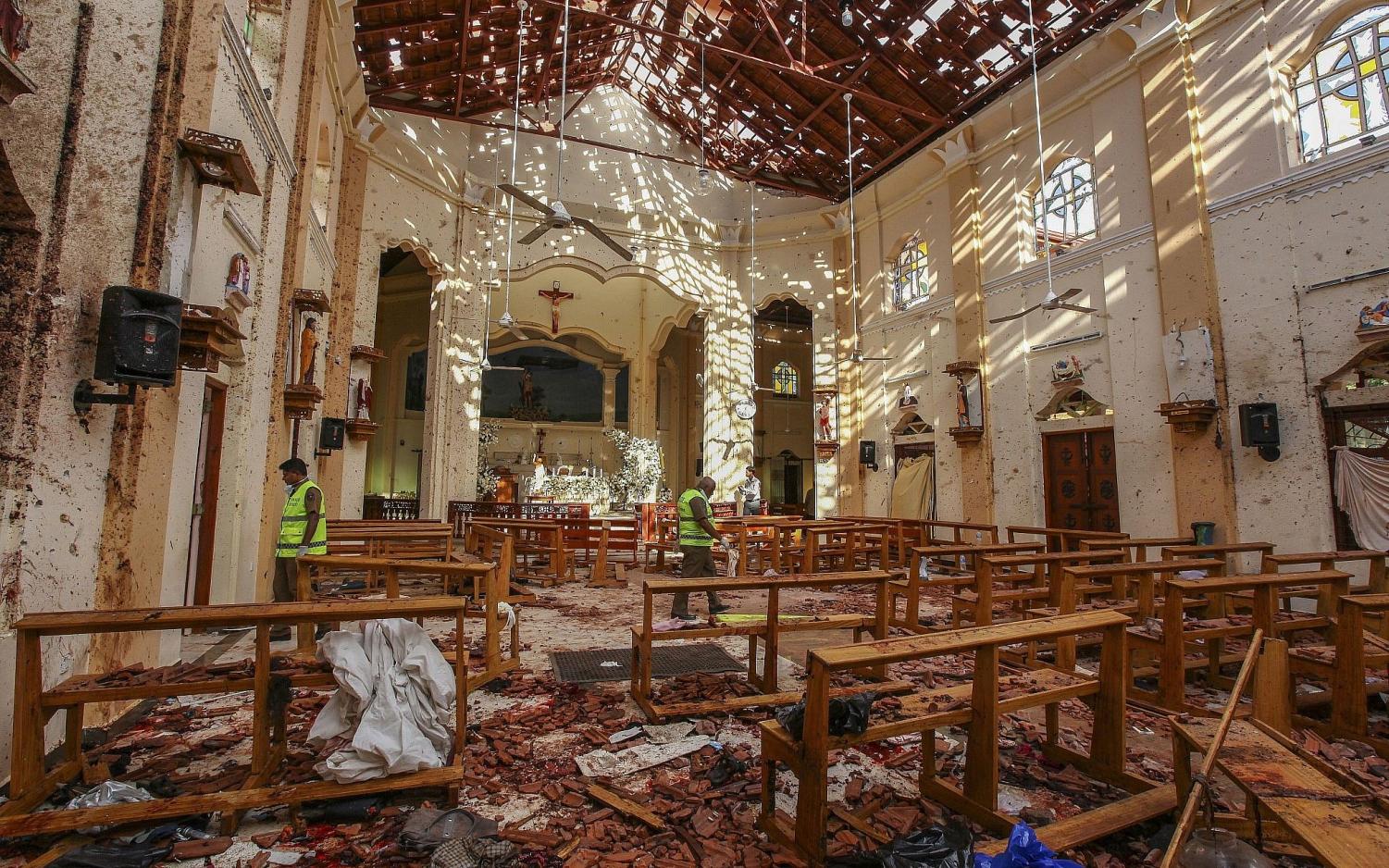While Americans awoke to attend Easter sunrise services, watching children fill baskets with eggs and sitting down to eat lunch with their families, three Christian churches and three hotels in Sri Lanka were targeted in a series of terrorist bombings. The church bombings were carried out during Easter services, killing nearly 300 people and leaving over 500 people injured, according to a recent report by NPR.
In the wake of this global tragedy, there was little media coverage. With so many people impacted by the bombings, why was the Sri Lanka tragedy neglected by international media coverage?
The lack of coverage was mainly caused by a social media ban in Sri Lanka during this tragedy to respect the privacy of the dead, avoid the spread of false information and prevent attention to terrorist groups. Social media has the capability to harbor chaos and confusion in tragedy, which can escalate to anger and violence. This can cause people to lose trust in the ability of social media to unify and liberate, as it has caused harm in understanding already confusing situations. The misinformation and confusion that is spread via social media can be avoided through responsibly analyzing the credibility and factuality of information that is posted online.
SOCIAL MEDIA BAN
According to the New York Times, the Sri Lankan government blocked many social media networks including Facebook, WhatsApp, YouTube, Instagram, Snapchat and Viber. A growing concern in posting about violence on social media is that it creates a spectacle out of real people navigating real atrocities, almost dramatizing their situation. They stated the ban on social media was out of respect for the victims of the bombings, those who were injured and those who lost loved ones to protect the privacy of their people in a time of tragedy.
Additionally, international coverage from mass media may give unwanted attention to terrorist groups and motivate similar violence in the future. In March 2018, Sri Lanka blocked social media out of fear of violence, as racist posts on Facebook spiraled into riots and lynchings against Muslim communities, according to the Australian Broadcasting Corporation. Inaccurate posts on Facebook and misinformation led to the government becoming weary of the use of social media sites. With previous issues of social media fostering violence and invoking fear, the Sri Lankan government declared a social media blackout during the terrorist attacks to avoid further chaos and pain.
RESPONSE TO THE BAN
People have grown weary of advocating for the benefits of using social media. No longer is social media an avenue for connecting people or giving liberation as a platform for people to speak. Instead, people have begun to associate social media with isolation and comparison, which can lead to anger, insecurity, and sometimes violent behavior. Even Ivan Sigal, the executive director of Global Voices, a digital advocacy and journalism organization, praises the Sri Lankan government for banning social media during a time of national unrest.
People post about others and share their thoughts online—no matter how hateful or misinformed —without any consideration of how their words impact the people around them. During a national tragedy, especially with the terrorist attacks in Sri Lanka, social media has the capacity to invoke fear, give attention to terrorism and dramatize an already chaotic situation. With the negative impacts that social media can have on an entire nation, it is easy to understand the reasoning of the Sri Lankan government in their ban of social media during this tragedy.
RESPONSIBILITY IN PLACE OF BAN
While social media does have the capacity to cause chaos, banning social media altogether does not mitigate the issue. Taking connection away from others can also cause chaos and confusion. Rather than letting fear of misinformation govern people and forbidding the spread of all information, the Sri Lankan government should have allowed accredited journalists to cover the bombings to report accurate and credible information.
In return, people need to discern the accuracy of information and news that they read on social media. Not everything that is posted online is true. By fact-checking information and verifying the credibility of sources, people can determine the accuracy of the news they are receiving. By taking responsibility for the information that people consume, individuals can suppress the majority of the confusion and chaos caused from misinformation.
Sri Lanka is just one example of how the mass spread of ill-informed ideas and the ability of people to post content that is not accurate or considerate of others can incite fear in an entire nation. However, instead of being afraid of ideas and allowing social media to encourage hate and misinformation, people should use social media as a platform to unite and help others through sharing ideas that are validated by accurate information and are respectful of others.








